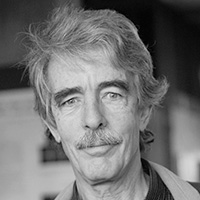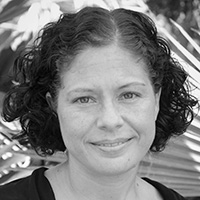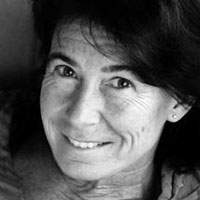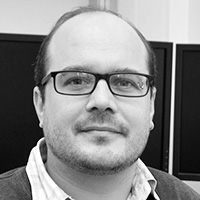
Organelle Biogenesis and
Signal Transduction
Turin • 26-28 May 2016



Thursday, 26 May |
|
|---|---|
| 12:00 | Registration |
| 14:00-16:00 | Session 1: Cell Adhesion and Migration Chair: Sara Cabodi |
| 14:00-14:20 | Annarosa Arcangeli (Florence) Distinct hERG1 conformational states regulate channel interaction with integrin receptors and downstream FAK-dependent signaling |
| 14:20-14:40 | Maria Chiara De Santis (Turin) PI3K-C2α regulates Polycystin-2 ciliary entry and protects from kidney cyst formation |
| 14:40-15:00 | Federica Fusella (Turin) Morgana: a novel player in apoptosis resistance and metastasis progression in breast tumorigenesis |
| 15:00-15:20 | Valeria Malacarne (Novara) Diacylglycerol kinase alpha contributes to tumorigenicity and invasiveness of glioblastoma stem cells |
| 15:20-15:40 | Azzurra Margiotta (Lecce) Role of Rab7a in cell migration: regulation of several key factors |
| 15:40-16:00 | Raffaele Strippoli (Rome) EMT induction by linear stretch in peritoneum mesothelial cells: role of a caveolin-1-TGF-beta1 interplay |
| 16:00-16:30 | Coffee break |
| 16:30-17:30 | Corinne Albiges-Rizo (Grenoble, France) Mechanical balance and vascular integrity |
| 17:30-18:30 | Session 2: Mitosis and Traffic Chair: Paola Defilippi |
| 17:30-17:50 | Emiliana Tognon (Milan) Control of lysosomal biogenesis and Notch-dependent tissue patterning by components of the TFEB-V-ATPase axis in Drosophila melanogaster |
| 17:50-18:10 | Miriam Martini (Turin) Mitotic spindle assembly and genomic stability require PI3K-C2a scaffolding function |
| 18:10-18:30 | Elena Morelli (Milan) An essential step of kinetochore formation controlled by the SNARE protein SNAP29 |
| 18:30-20:00 | Poster session with drinks |
| 20:30 | Social Dinner |
Friday, 27 May |
|
|---|---|
| 9:00-11:00 | Session 3: Endoplasmic Reticulum and Secretory Pathways Chair: Sara Colombo |
| 9:00-9:20 | Tiziana Anelli (Milan) Linking signaling and quality control in the IgM factory |
| 9:20-9:40 | Antonino Colanzi (Naples) A JNK-GRASP65 signalling axis controls acetylation of tubulin to regulate Golgi-ribbon formation and cell migration |
| 9:40-10:00 | Alberto Danieli (Milan) A novel approach for Correlative Light and Electron Microscopy: the dark side of the µ |
| 10:00-10:20 | Andrea Orsi (Milan) IRE1-driven life/death decisions upon triaging the severity of endoplasmic reticulum stress |
| 10:20-10:40 | Advait Subramanian (Naples) Export of Cargo from the Endoplasmic Reticulum is regulated by a control system |
| 10:40-11:00 | Carmen Valente (Naples) Molecular mechanisms of Golgi membrane fission |
| 11:00-11:30 | Coffee break |
| 11:30-12:30 | Patrick Caswell (Manchester, UK) Endocytic trafficking of integrins in cancer cell invasion |
| 12:30-14:00 | Lunch |
| 14:00-16:00 | Session 4: Endocytic Pathways Chair: Letizia Lanzetti |
| 14:00-14:20 | Elisa Barbieri (Milan) Novel EGFR endocytic pathway requires calcium release at ER-PM contact sites |
| 14:20-14:40 | Katia Cortese (Genoa) An ubiquitin-proteasome-endocytic pathway but not autophagy orchestrates ErbB2 internalization and cleavage in HSP90-inhibited breast cancer cells |
| 14:40-15:00 | Anna Fassio (Genoa) Endosome-like organelles at presynaptic terminal: the role of Arf6 in synaptic vesicle cycling |
| 15:00-15:20 | Simona Paladino (Naples) Fig4 regulates the homeostasis of endosomal compartments in different mammalian cell types |
| 15:20-15:40 | Emanuela Pupo (Candiolo, TO) MET kinase inhibition block receptor endocytosis and causes rebound effects upon withdrawal |
| 15:40-16:00 | Daniela Sarnataro (Naples) The small organic compound NSC47924 controls 37/67kDa laminin receptor endocytosis and interaction with the cellular prion protein |
| 16:00-16:30 | Coffee break |
| 16:30-17:30 | Jean Gruenberg (Geneva, Switzerland) Endosomal lipids in trafficking and signaling |
| 17:30-18:30 | Session 5: Membrane Trafficking Chair: Sara Sigismund |
| 17:30-17:50 | Valentina Buffa (Palermo) Importance of protein lipidation in the production and structural organization of extracellular vesicles (EVs): an integrated approach in skeletal muscle cells |
| 17:50-18:10 | Arianna Crespi (Milan) Role of the accessory subunit in the α3β4 neuronal nicotinic acetylcholine receptor (nAChR) in cell surface trafficking |
| 18:10-18:30 | Alessandro Ulivi (Milan) SNX27, a protein of the retromer complex, regulates GPR17 recycling and the kinetics of oligodendrocyte differentiation |
| 18:30-20:30 | Poster session with drinks |
Saturday, 28 May |
|
|---|---|
| 9:00-10:20 | Session 6: Signal Transduction Chair: Eelco Van Anken |
| 9:00-9:20 | Paola Genevini (Milan) Effect of VAPB silencing on the NSC34 motor neuronal cell line |
| 9:20-9:40 | Serena Pillozzi (Florence) Macrolide antibiotics have an antileukemic effect by modulating the autophagic flux through the involvement of hERG1 potassium channels |
| 9:40-10:00 | Ilenia Segatto (Aviano, PN) Stathmin plays a role in both normal and transformed mammary gland |
| 10:00-10:20 | Livia Testa (Milan) The secretion of the leaderless cytokine IL-1β: multiple ways to get out of the cell |
| 10:20-10:50 | Coffee break |
| 10:50-11:50 | Maya Schuldiner (Rehovot, Israel) Transversing boundaries - contact sites between organelles |
| 11:50-12:50 | Discussion and evaluation + closing remarks |
The poster's maximum size is A0 (841 x 1189 mm; width x height).
Correct format... 
 Wrong format...
Wrong format...
P1.1 Daniele Avanzato (Candiolo)
The GTPase-activating protein RN-tre as a pro-survival molecule in breast cancer cells
P1.2 Annalisa Camporeale (Turin)
Non canonical functions of STAT3 in regulating calcium signaling and resistance to apoptosis
P1.3 Jennifer Chapelle (Turin)
p140CAP adaptor counteracts ERBB2-driven migration through inhibition of a Rac dependent signaling
P1.4 Sharmila Fagoonee (Turin)
Pro-oncogenic role of the Epithelial Splicing Regulatory protein 1 in human colorectal tumor progression
P1.5 Miriam Martini (Turin)
Mitotic spindle assembly and genomic stability require PI3K-C2a scaffolding function
P1.6 Cinzia Milesi (Milan)
Redundant and non-redundant functions of Eps15 and Eps15L1 in mammals
P1.7 Gianmarco Pallavicini (Turin)
Citron kinase as a therapeutic target for medulloblastoma
P1.8 Sara Petrillo (Turin)
Endothelial loss of the heme exporter Flvcr1A alters vascular integrity
P1.9 Giulia Petroni (Florence)
Exploiting the hERG1/β1/PI3K complex to overcome anti-angiogenesis therapy resistance in CRC
P1.10 Laura Seclì (Turin)
The pro-migratory function of extracellular Morgana in Triple Negative Breast Cancer cells
P2.1 Anush Bakunts (Milan)
How the cell reshapes upon homeostatic readjustment of the endoplasmic reticulum
P2.2 Gianluca Baldanzi (Novara)
Repurposing of existing drugs for XLP-1 therapy
P2.3 Hugo Carvalho (Milan)
Translocation of spontaneously inserting tail-anchored proteins - mechanism and applications
P2.4 Sara Colombo (Milan)
TRC40-dependent tail-anchored protein insertion into protoliposomes reconstituted from rat liver microsomes
P2.5 Bruna Costa (Milan)
Mechanism of precise intracellular targeting of spontaneously inserting tail-anchored proteins
P2.6 Elvira Famulari (Turin)
Cell therapy for Crigler-Najjar type I syndrome using human adult liver stem cells
P2.7 Chiara Giannone (Milan)
Sweet manipulation of protein aggregates in the early secretory pathway
P2.8 Luca Goitre (Orbassano, TO)
Role of oxidative stress in Cerebral Cavernous Malformation disease pathogenesis
P2.9 Tiziana Tempio (Milan)
Localization of active Ras in yeast mitochondria and apoptosis
P2.10 Renata Anita Tisi (Milan)
TRPML (mucolipin) homologs in budding yeast are involved in different signal transduction pathways
P2.11 Milena Vitale (Milan)
Dynamic of endoplasmic reticulum stress response to proteostatic challenges
NEW DEADLINES
Registrations & Abstracts:
29 April 2016
Payments:
2 May 2016
Organising Committee
SARA COLOMBO
CNR Institute of Neuroscience (Milan)
PAOLA DEFILIPPI
University of Turin
LETIZIA LANZETTI
University of Turin
EELCO VAN ANKEN
San Raffaele Scientific Institute (Milan)
 Jean Gruenberg received a Ph.D. in biochemistry from the University of Geneva in 1980. He worked as a post-doctoral fellow in parasitology at the University of California in Riverside (UCR) until 1984 and in cell biology at the European Molecular Biology Laboratory (EMBL) in Heidelberg. In 1987, he became group leader in the Cell Biology Programme of EMBL. He moved to Geneva in 1993, as Professor of Biochemistry at the University, and was chairman of the Department of Biochemistry from 1995 to 2007. He is a member of the Swiss Initiative in Systems Biology, Project LipidX since 2008, and of the National Center for Competence in Research (NCCR) in Chemical Biology since 2011. The Gruenberg group is interested in studying the principles responsible for the biogenesis and dynamic properties of endosomes, including specialized protein–lipid domains that are altered in some human pathologies. By combining Biochemistry, Cell and Molecular Biology and Systems Biology the group aims at the characterization of components, molecular assemblies, membrane domains and principles that regulate the organization, dynamics and functions of endosomal membranes.
Jean Gruenberg received a Ph.D. in biochemistry from the University of Geneva in 1980. He worked as a post-doctoral fellow in parasitology at the University of California in Riverside (UCR) until 1984 and in cell biology at the European Molecular Biology Laboratory (EMBL) in Heidelberg. In 1987, he became group leader in the Cell Biology Programme of EMBL. He moved to Geneva in 1993, as Professor of Biochemistry at the University, and was chairman of the Department of Biochemistry from 1995 to 2007. He is a member of the Swiss Initiative in Systems Biology, Project LipidX since 2008, and of the National Center for Competence in Research (NCCR) in Chemical Biology since 2011. The Gruenberg group is interested in studying the principles responsible for the biogenesis and dynamic properties of endosomes, including specialized protein–lipid domains that are altered in some human pathologies. By combining Biochemistry, Cell and Molecular Biology and Systems Biology the group aims at the characterization of components, molecular assemblies, membrane domains and principles that regulate the organization, dynamics and functions of endosomal membranes.
 Dr. Maya Schuldiner was born in Israel. She completed two years of military service in 1996, and graduated magna cum laude with a BSc in Biology from the Hebrew University in Jerusalem in 1998. She went on to complete both her MSc and a PhD in genetics, also at the Hebrew University, in 1999 and 2003. She conducted postdoctoral research in Jonathan Weissman’s laboratory at the Department of Cellular and Molecular Pharmacology at the University of California in San Francisco until 2008, when she joined the faculty of the Weizmann Institute of Science as an assistant professor.
For her work Dr. Schuldiner has received the EMBO young investigator award and has been chosen as one of the most promising young scientist (“40 under 40”) by the prestigious biology journal “Cell”. Dr. Schuldiner has published over 50 research articles in international, peer-reviewed journals and was recently selected as a member of the Israel Young Academy. Dr. Schuldiner is married to Dr. Oren Schuldiner who is also an assistant professor at the Weizmann Institute of Science and they have three boys: Daniel, Noam and Mattan.
Dr. Maya Schuldiner was born in Israel. She completed two years of military service in 1996, and graduated magna cum laude with a BSc in Biology from the Hebrew University in Jerusalem in 1998. She went on to complete both her MSc and a PhD in genetics, also at the Hebrew University, in 1999 and 2003. She conducted postdoctoral research in Jonathan Weissman’s laboratory at the Department of Cellular and Molecular Pharmacology at the University of California in San Francisco until 2008, when she joined the faculty of the Weizmann Institute of Science as an assistant professor.
For her work Dr. Schuldiner has received the EMBO young investigator award and has been chosen as one of the most promising young scientist (“40 under 40”) by the prestigious biology journal “Cell”. Dr. Schuldiner has published over 50 research articles in international, peer-reviewed journals and was recently selected as a member of the Israel Young Academy. Dr. Schuldiner is married to Dr. Oren Schuldiner who is also an assistant professor at the Weizmann Institute of Science and they have three boys: Daniel, Noam and Mattan.
 Corinne Albiges-Rizo received a PhD in Cellular and Molecular biology from the University of Grenoble in 1990. She worked as a PhD student at EMBL in Grenoble and completed her post-doctoral research as a fellow in HHMI in Chicago. She moved back to Grenoble as a CNRS Scientist. Her team is based within the Institut Albert Bonniot and she also heads the department of microenvironment and cell plasticity. She is President of the French Society for Cell Biology (SBCF). Using transdisciplinary approach, her team is investigating how focal adhesions and invadosomes sense varied external cues to modulate downstream signaling networks and force transmission to elucidate the sensory mechanisms underlying invasion and tissue architecture. The lab is specifically exploring the biological and physiological relevance of integrin activation. The current project is to study how integrins, together or with co-receptors, respond to combination of chemical and physical inputs and then form signaling complexes that are arranged in time and space to specify cell contractility and transcriptional program.
Corinne Albiges-Rizo received a PhD in Cellular and Molecular biology from the University of Grenoble in 1990. She worked as a PhD student at EMBL in Grenoble and completed her post-doctoral research as a fellow in HHMI in Chicago. She moved back to Grenoble as a CNRS Scientist. Her team is based within the Institut Albert Bonniot and she also heads the department of microenvironment and cell plasticity. She is President of the French Society for Cell Biology (SBCF). Using transdisciplinary approach, her team is investigating how focal adhesions and invadosomes sense varied external cues to modulate downstream signaling networks and force transmission to elucidate the sensory mechanisms underlying invasion and tissue architecture. The lab is specifically exploring the biological and physiological relevance of integrin activation. The current project is to study how integrins, together or with co-receptors, respond to combination of chemical and physical inputs and then form signaling complexes that are arranged in time and space to specify cell contractility and transcriptional program.
 Patrick is based within the Wellcome Trust Centre for Cell Matrix Research at the University of Manchester. Patrick studied Biochemistry at the University of Nottingham, before undertaking a PhD at the University of Leicester and a postdoc in Jim Norman’s lab at the Beatson Institute for Cancer Research. Patrick established his lab in 2010, focussing on how cell-matrix interactions through integrins generate signals that control key cellular processes such as cell migration, differentiation and survival. The lab is specifically interested in vesicular trafficking, and has recently shown that endocytic trafficking of integrins and co-cargo receptors controls the spatial activation of RhoGTPases to modulate the actin cytoskeleton and invasion of cancer cells.
Patrick is based within the Wellcome Trust Centre for Cell Matrix Research at the University of Manchester. Patrick studied Biochemistry at the University of Nottingham, before undertaking a PhD at the University of Leicester and a postdoc in Jim Norman’s lab at the Beatson Institute for Cancer Research. Patrick established his lab in 2010, focussing on how cell-matrix interactions through integrins generate signals that control key cellular processes such as cell migration, differentiation and survival. The lab is specifically interested in vesicular trafficking, and has recently shown that endocytic trafficking of integrins and co-cargo receptors controls the spatial activation of RhoGTPases to modulate the actin cytoskeleton and invasion of cancer cells.